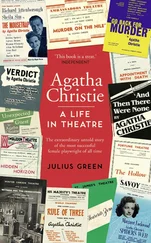Alice Green - Town Life in the Fifteenth Century, Volume 2
Здесь есть возможность читать онлайн «Alice Green - Town Life in the Fifteenth Century, Volume 2» — ознакомительный отрывок электронной книги совершенно бесплатно, а после прочтения отрывка купить полную версию. В некоторых случаях можно слушать аудио, скачать через торрент в формате fb2 и присутствует краткое содержание. Жанр: literature_19, foreign_antique, foreign_prose, Историческая проза, на английском языке. Описание произведения, (предисловие) а так же отзывы посетителей доступны на портале библиотеки ЛибКат.
- Название:Town Life in the Fifteenth Century, Volume 2
- Автор:
- Жанр:
- Год:неизвестен
- ISBN:нет данных
- Рейтинг книги:5 / 5. Голосов: 1
-
Избранное:Добавить в избранное
- Отзывы:
-
Ваша оценка:
- 100
- 1
- 2
- 3
- 4
- 5
Town Life in the Fifteenth Century, Volume 2: краткое содержание, описание и аннотация
Предлагаем к чтению аннотацию, описание, краткое содержание или предисловие (зависит от того, что написал сам автор книги «Town Life in the Fifteenth Century, Volume 2»). Если вы не нашли необходимую информацию о книге — напишите в комментариях, мы постараемся отыскать её.
Town Life in the Fifteenth Century, Volume 2 — читать онлайн ознакомительный отрывок
Ниже представлен текст книги, разбитый по страницам. Система сохранения места последней прочитанной страницы, позволяет с удобством читать онлайн бесплатно книгу «Town Life in the Fifteenth Century, Volume 2», без необходимости каждый раз заново искать на чём Вы остановились. Поставьте закладку, и сможете в любой момент перейти на страницу, на которой закончили чтение.
Интервал:
Закладка:
Alice Stopford Green
Town Life in the Fifteenth Century, Volume 2 (of 2)
CHAPTER I
THE TOWN MANNERS
The controversy concerning the bounds and limits of their freedom, which the English boroughs were forced to maintain with powerful organizations already settled in the land – with the monarchy, the baronage, or the Church – represented in the history of each municipality that which in the case of States of greater magnitude we call the foreign policy of the commonwealth. But whatever may be the compass of a dominion, whether it be a borough or an empire, no influence is more potent in shaping the character and destiny of the community than the nature of its external relations. It was in the single-handed conflict with foreign powers, whether superior lord or insidious rival, that the drapers and mercers, the smiths and butchers and weavers of every country town were forced, with a patriotism quickened by necessity, to meddle in matters of State and to concern themselves about the public weal; their ardours were stirred by legends of an ancient freedom, while their political instinct was trained by incessant discussion of legal precedent and right; and in the strain of perpetual taxation, in heavy burdens imposed upon a people whose prosperity was new, uncertain, or shifting; above all in the strengthening of certain forms of narrow municipal despotism born of the struggle against external danger, they paid the price of a bracing public discipline.
But there is another side of the town history which is not less important, and which is far more complicated than the question of its foreign relations and policy – that is, the problem of its own nature, of the spirit by which it was animated and the inherent resources of its corporate life. In the town a new world had grown up with an organization and a polity of its own wholly different from that of the country. Members who joined its community were compelled to renounce all other allegiance and forego any protection from other patrons. The chief magistrate set over its inhabitants must be one of their own fellow-citizens – “not a far dweller” unless in time of special need, such as war, and then only “by the pleasure of the commonalty.” [1] Journ. Arch. Ass. xxvii. 461, 488.
Adventurers from the manor-houses of the neighbourhood and strangers in search of fortune were equally shut out; and it was only when a county squire was willing to throw in his lot with the burghers, to turn into a good citizen and honest tradesman, and to prove his credit and capacity by serving in a subordinate post, [2] Freeman’s Exeter, 146-7.
that he could hope to rise to the highest office. It is true that country folk were welcome to pay a double price for having a stall in the market, or a store-room in the Common House for their wool; while the impoverished knight might come in search of a renewal of his wasted fortunes through the dowry of some rich mercer’s daughter. But otherwise the town carried on its existence apart, in a watchful and jealous independence. Its way of life, its code of manners, its habits, aims, and interests, the condition of the people, the local theories of trade by which its conduct of business was guided, the popular views of citizenship and government under the influence of which the burghers regulated their civic policy – all these things must be kept in view if we would gain a clear idea of the growth of the borough from within.
The way of thinking and acting of the new world of traders and shopkeepers and artizans lives again for us in a wholly new literature which first sprang up in England about the middle of the fifteenth century – in Books of Courtesy and popular rhymes as to the conduct of daily life. The first English manual of etiquette appeared about 1430. Germany had had its book of courtesy more than two hundred years before, a set of rules composed for a distinguished society by equally fastidious writers, one of whom laments that his pen had been made “common” by writing about masters and servants, and explains that it was never happy save in describing knights and ladies. In northern Italy a similar book drawn up in the thirteenth century had taken a very different character. There the merchants and shopkeepers of the towns, impatient of “new ceremonies” brought in from over the mountains which they deemed contrary to all the traditions of the traders of Lucca and Florence and only fit for the degenerate Neapolitans, framed rules to suit their own needs and aspirations. The French followed rather later, at the end of the fourteenth century; and then last of all came the English experiment. [3] Book of Precedence, E. E. Text Society, part ii. 8-18, 79, etc. 143, etc. Manners and Meals (E. E. Text Soc.), 175.
The very appearance of such a book at this time is most significant. The nobles had already their own literary traditions handed down from an older world; and in the ideal of chivalrous conduct which was enshrined for them in the “Morte d’Arthur,” the Knights of the Round Table still served as a standard of social virtue and good bearing for the upper classes – a standard with which the burghers had nothing whatever to do. But the new literature was for the townsfolk themselves, and it bore on every line the impress of its origin. A growing sense of dignity and self-respect in the middle class of traders and artizans wakened aspirations for polite manners, and intercourse with strangers abroad gave fresh stimulus to social ambition. Englishmen who visited Flanders towards the end of the century were as much impressed by the Flemish manners as by the Flemish wealth: “they can best behave them and most like gentlemen,” was their comment. [4] Paston Letters, ii. 319.
In England the new society, with no heritage of tradition and no recognized array of models in the past, had to create its own standard of behaviour, to shape its own social code, to realize for itself the art of life. Compilers worked busily in the service of the middle-class aspirants. One book of courtesy after another was adapted for the vulgar use. The “Rules of S. Robert,” the good Bishop of Lincoln, whereby “whosoever will keep these rules well will be able to live on his means and keep himself and those belonging to him,” were put into English in a brief form, after wearing a more courtly garb of French or Latin for three centuries. [5] Lamond’s Walter of Henley 123-145. Monum. Franciscana (Rolls Series), i. app. ix.
A Latin treatise on manners was translated for the unlearned by a writer who prayed for help in his work from Him who formed man after His own image, from Mary the gracious Mother, and from Lady Facetia the Mother of all virtue. [6] Manners and Meals, pp. 250, 251, 252.
Sound codes of morals were put in the form of an A B C. [7] Ibid. 258-260.
The right conduct of life, especially as it concerned polite behaviour, was set out in little songs “made for children young, at the school that bide not long.” [8] Ibid. 274.
Plain directions in verse pointed out the duties of girls, of young men, of housewives, of wandering youths looking for service. The rhymes are of the homeliest kind, with trite and prosaic illustrations taken from the common sights of the market-place, the tavern, the workshop, or the street with its wandering pigs and its swinging signs; it is in their very rudeness and simpleness that their interest lies. Meanwhile political and satirical songs which had been so common in the foregoing centuries mostly died out of fashion and were heard no more, as the burghers, quickened into a new self-consciousness, began to be concerned for a time with matters nearer home.
Интервал:
Закладка:
Похожие книги на «Town Life in the Fifteenth Century, Volume 2»
Представляем Вашему вниманию похожие книги на «Town Life in the Fifteenth Century, Volume 2» списком для выбора. Мы отобрали схожую по названию и смыслу литературу в надежде предоставить читателям больше вариантов отыскать новые, интересные, ещё непрочитанные произведения.
Обсуждение, отзывы о книге «Town Life in the Fifteenth Century, Volume 2» и просто собственные мнения читателей. Оставьте ваши комментарии, напишите, что Вы думаете о произведении, его смысле или главных героях. Укажите что конкретно понравилось, а что нет, и почему Вы так считаете.












